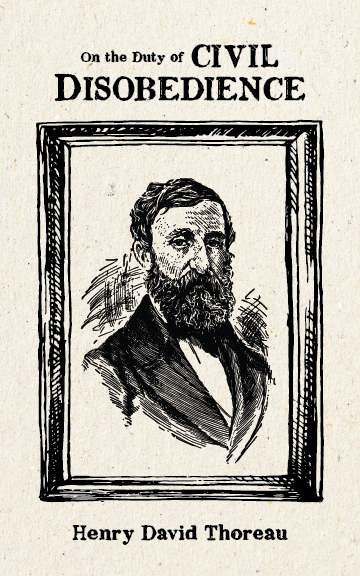On the Duty of Civil Disobedience
On the Duty of Civil Disobedience
Also called Resistance to Civil Government, or Civil Disobedience, is an essay by American transcendentalist, Henry David Thoreau. In reaction to the authors perceived injustice of the American Mexican War, and slavery in the United States, the essay argues that civil disobedience is justified and moral to stop their governments from making them agents of evil. The basis for the arguments presented in this book began with Mr. Thoreau lecturing at the Concord Lyceum. It was first published in 1849 in an anthology called Æsthetic Papers.
Henry David Thoreau was a 19th century American essayist, poet, and philosopher. He was an ardent Abolitionist and part of the intellectual movement in the North that attacked the Fugitive Slave Law and defended John Brown. Thoreau also had a keen interest in the natural sciences, and his writings in many ways helped create modern environmental and ecological studies. His best-known works are Walden, and On the Duty of Civil Disobedience. Thoreau’s writings went on to influence notable world figures like Leo Tolstoy, Mahatma Gandhi, and Martin Luther King Jr.



